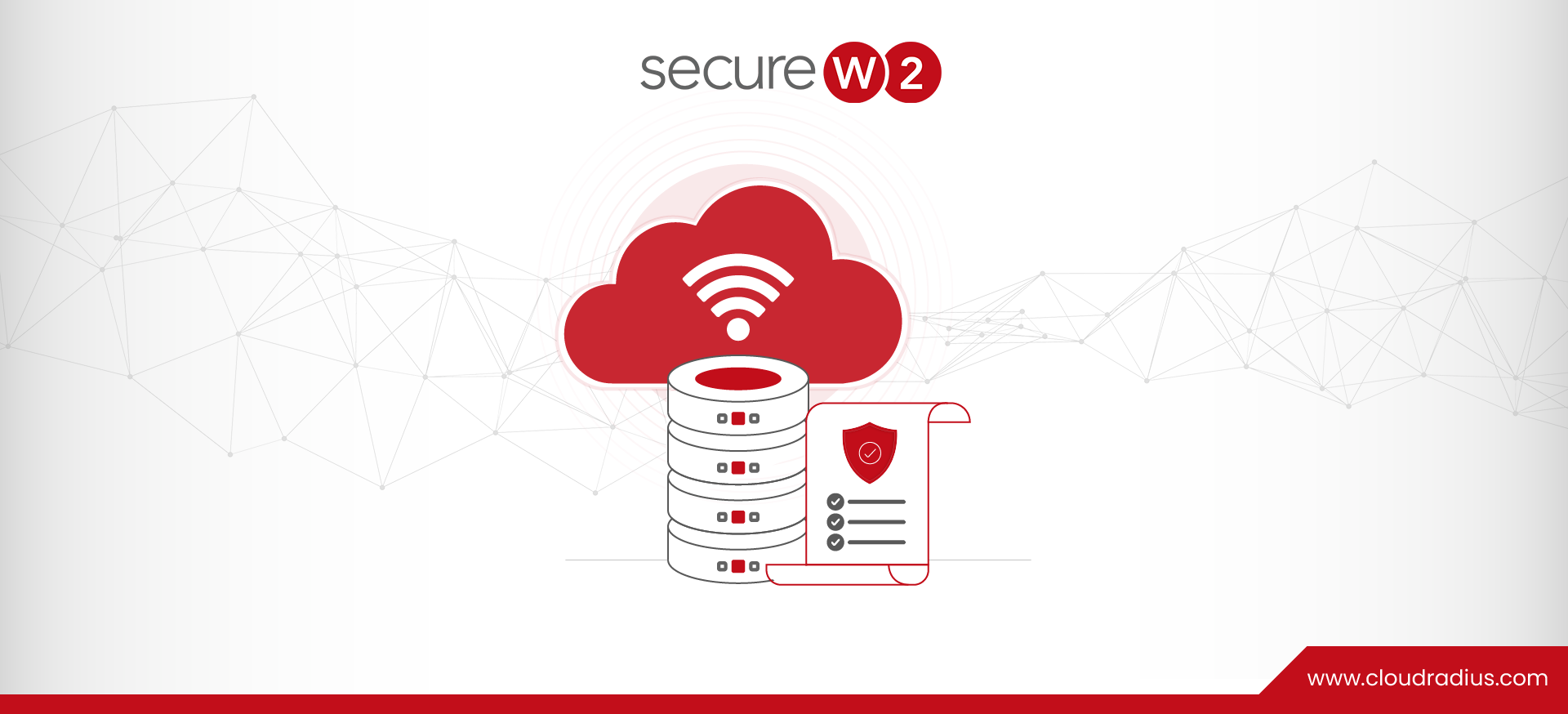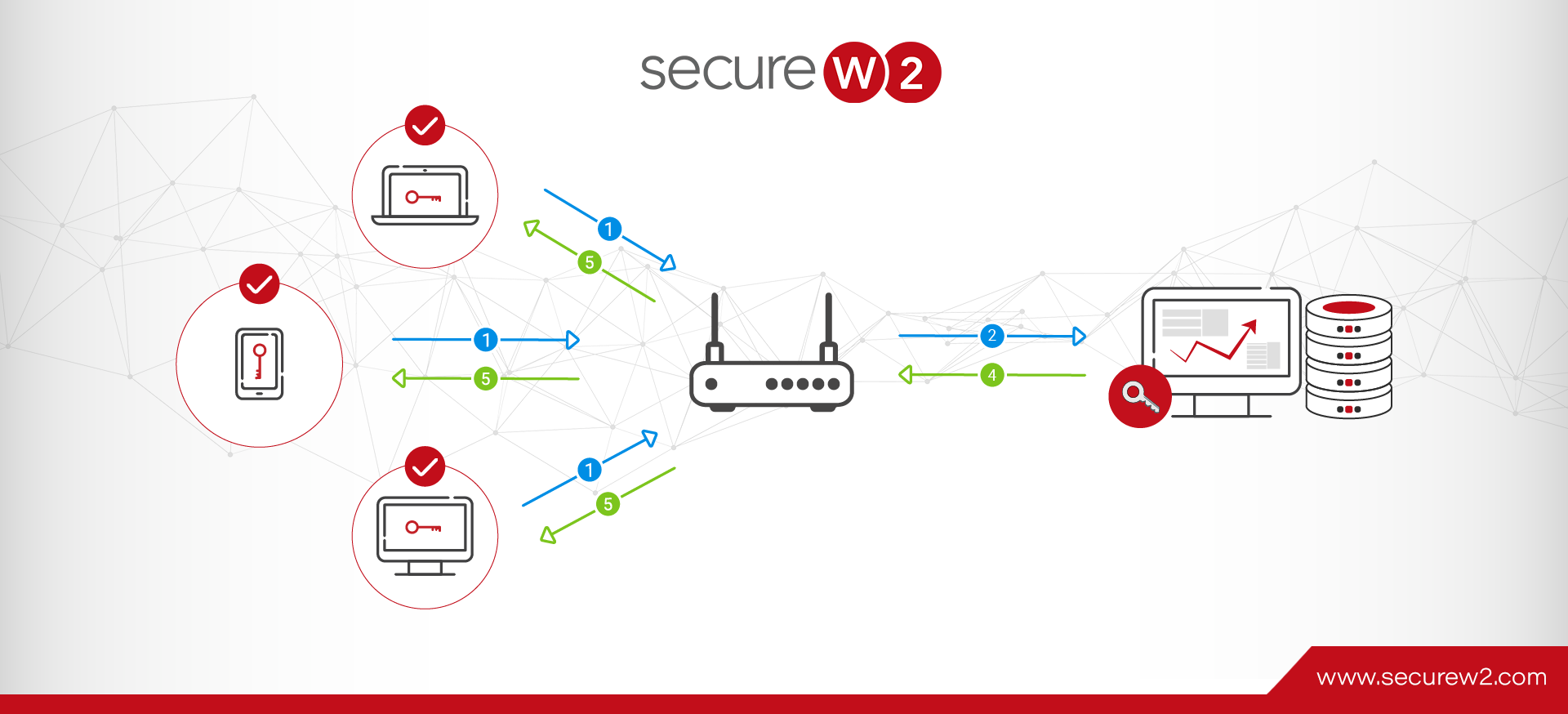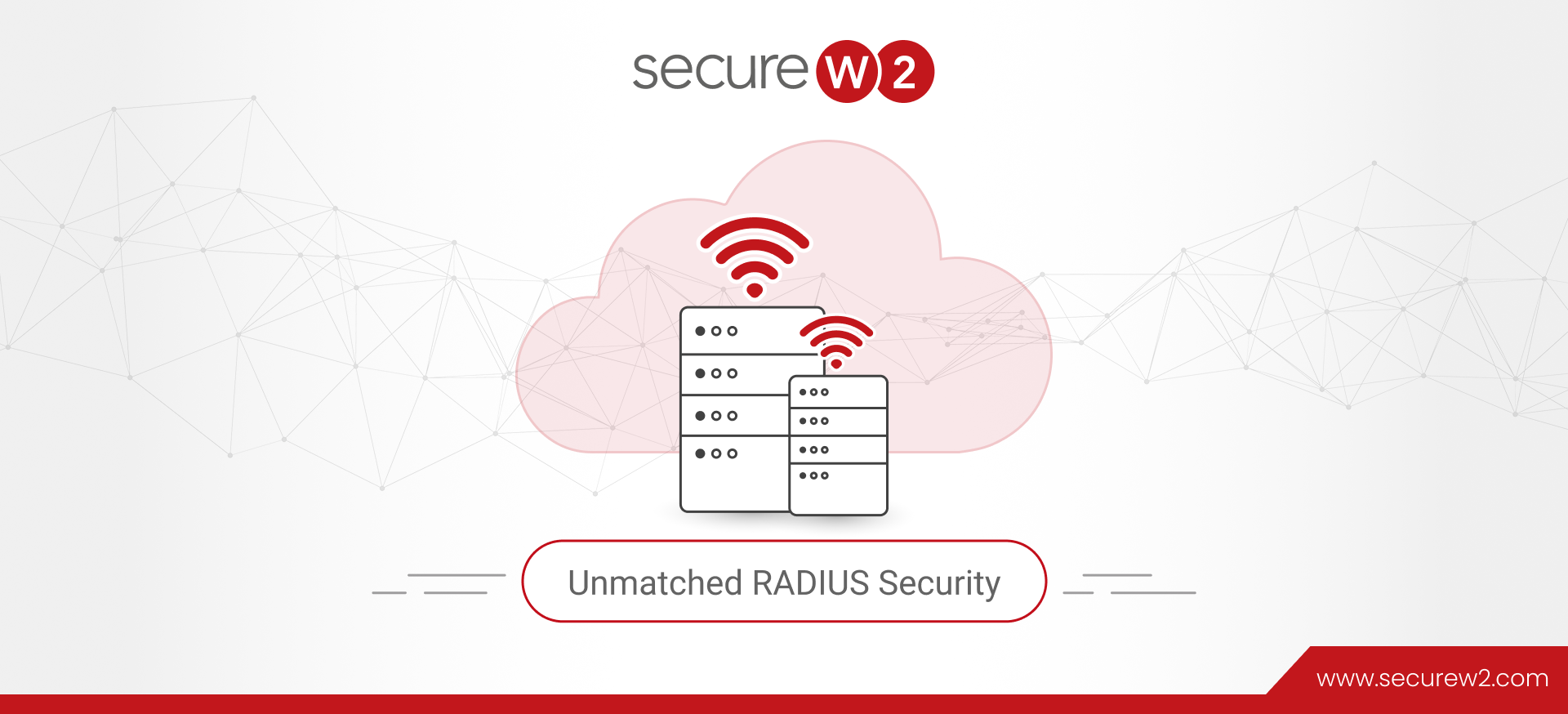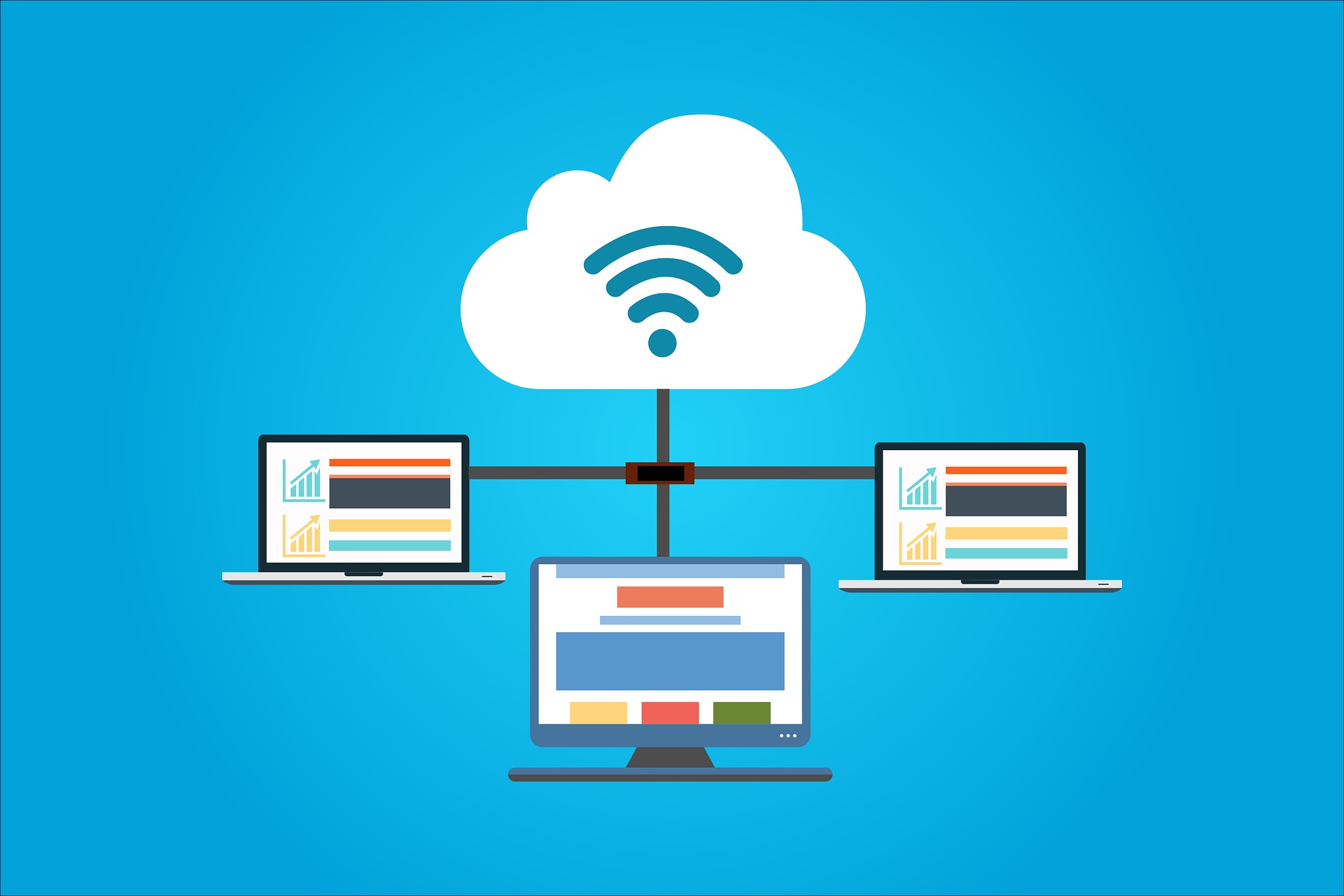
Cloud RADIUS: Why It’s Essential for Modern Networks.
On-premise Remote Authentication Dial-in User Service (RADIUS) is losing relevance since it does not support remote authentication of users and devices. They need VPNs to connect to remote networks, making them vulnerable to threats and MITM attacks. Being physically present in a location requires constant hardware maintenance and security.
It is not scalable since it must be duplicated physically across various locations, adding to infrastructure costs. Cloud RADIUS authorizes and authenticates remote users to gain network access. Users and devices can access servers across multiple locations. It also enables 802.1X authentication using the EAP-TLS protocol for certificate-based authentication.
Cloud RADIUS is more than just cost-effective; it also has many security advantages.
Eliminates Password-Related Network Threats
Organizations often face issues related to their network’s vulnerability to over-the-air credential theft. Cybercriminals have numerous attack methods to obtain legitimate credentials and compromise the safety of the entire operation. When using a WPA2-PSK network, a hacker can mimic a genuine wi-fi network and lure the user into sending their credentials to a fake SSID with the same name as their Wi-Fi network, putting your organization at serious risk for credential theft.
A Cloud RADIUS server enables 802.1x, which encrypts each user’s session uniquely, preventing credential theft and securing private information. A good Cloud RADIUS solution can integrate with different infrastructural components, such as your Identity Provider (IDP), MDM, and more. Our Cloud RADIUS, for example, can perform a dynamic lookup in major SAML IDPs like Entra ID, Google, Okta, & OneLogin. This adds an extra layer of security, ensuring only the most current access policies are applied to each authentication request.
Mutual Client-Server Authentication With EAP-TLS For Secure Connection
In mutual client-server authentication, a client and a network access server verify each other’s identity before the client can access the network. Using the Extensible Authentication Protocol-Transmission Layer Security (EAP-TLS), the client and server mutually validate each other’s identity through digital certificates. When a client initiates a TLS session, they perform a two-way handshake that establishes the identity of a server and shares the public-private key.
The session keys encrypt all messages for the rest of the session, preventing data from being intercepted during a session and protecting your network from unauthorized access, credential theft, and credential-based attacks. A CloudRADIUS with EAP-TLS on a WPA2-Enterprise network supports mutual server authentication.
Customize Network Access Through Virtual Local Area (VLAN) Segmentation
Implementing a Cloud RADIUS Server allows organizations to grant access based on user roles, geographical locations, hierarchy, and departments. For example, an employee from development cannot access employee records and data, and an employee from human resources cannot access critical codes. Any attribute within the IdP can be used to apply network policies.
Network segmentation can be beneficial for keeping your network secure. You can set up VLAN segmentation, where the whole network is divided into smaller virtual networks and segregated for each device and user type for 802.1X authentication. For example, these VLANs can be segregated into a separate student network from staff so students cannot access confidential information. In an organization, VLANs can be segregated into specific departments, such as HR, development, finance, etc., to prevent unauthorized access.
Devices that don’t support 802.1X authentication, like printers and IoT, can also be segregated into separate VLANs so they don’t become attack vectors to your organizational network.
Available Servers With Distributed Denial-of-Service (DDOS) Resilience
A DDoS attack- Image courtesy: Cloudflare
As we know, a Cloud RADIUS server is hosted on the cloud, unlike an on-premise server. Cloud RADIUS servers adjust their resources automatically. If an authentication server is overwhelmed with multiple requests, the subsequent requests are rerouted to additional servers, enabling secure authentication.
SecureW2’s Cloud RADIUS uses digital certificates instead of passwords, reducing the attack surface for DDoS attacks. Digital certificates are difficult to steal or duplicate compared to passwords and credentials. The CloudRADIUS also enables centralized policy management for easier policy-based access for users and devices across the network, mitigating any potential risk by blocking unauthorized access.
Detailed Logging And Monitoring
A Cloud RADIUS service provides detailed, real-time RADIUS logs that contain essential information, like who is trying to connect to your network, failed requests, and authentication success rates. These logs serve as a first-hand source of information for any unauthorized or malicious network access attempts.
RADIUS logs can be exported to Security Information and Event Management (SIEM) and Syslogs, where administrators can quickly view them, analyze them, and respond to threats. SIEM generates log reports for compliance purposes, and stores log for an extended period for post-threat analysis.
Security Benefit Of Cloud RADIUS vs On-Premise RADIUS
Cloud RADIUS can offer organizations an affordable and hassle-free way to secure their networks. While on-prem servers are costly and require on-site maintenance, Cloud RADIUS can be managed anywhere and requires no physical installation. Cloud RADIUS is also the only server with an easy-to-use, Managed, and dynamic PKI, which ensures that your employees’ credentials aren’t being sent over the air, often unencrypted.
Organizations depend on VPN connections to connect users to critical resources, especially now with remote and hybrid work. However, misconfigured VPNs open the door to malware threats and DNS attacks. Cloud RADIUS delivers a smarter, more secure solution—enforcing 802.1X RADIUS authentication to ensure only trusted users and devices gain access.
Using digital certificates with EAP-TLS on a WPA-Enterprise network provides remote users a fast and secure connection. A PKI manages the whole certificate lifecycle, allowing administrators to automate certificate distribution to all their network endpoints. A PKI integrates with identity providers to provide identity context and see who and what connects to a network.
Leverage SecureW2’s Cloud RADIUS For Secure Network Authentication
On-premise servers can’t keep up with growing security needs as they do not provide remote access to users and devices. SecureW2’s Cloud RADIUS is hosted in the cloud and can be scaled according to an organization’s needs. It offers built-in redundancy, so a high-traffic event will not slow or disrupt authentication. Our dynamic RADIUS enables certificates to be edited following a dynamic look-up policy, where user attributes and policies can be updated immediately before authentication.
Our Cloud RADIUS also provides detailed event logs that provide information on every successful or unsuccessful login attempt. As an IT administrator, you can filter logs to identify the exact error and troubleshoot faster. With SIEM integration, all your compliance needs are met, and your network complies with the existing security regulations.
Click here to learn how a Cloud RADIUS benefits your network security needs.




